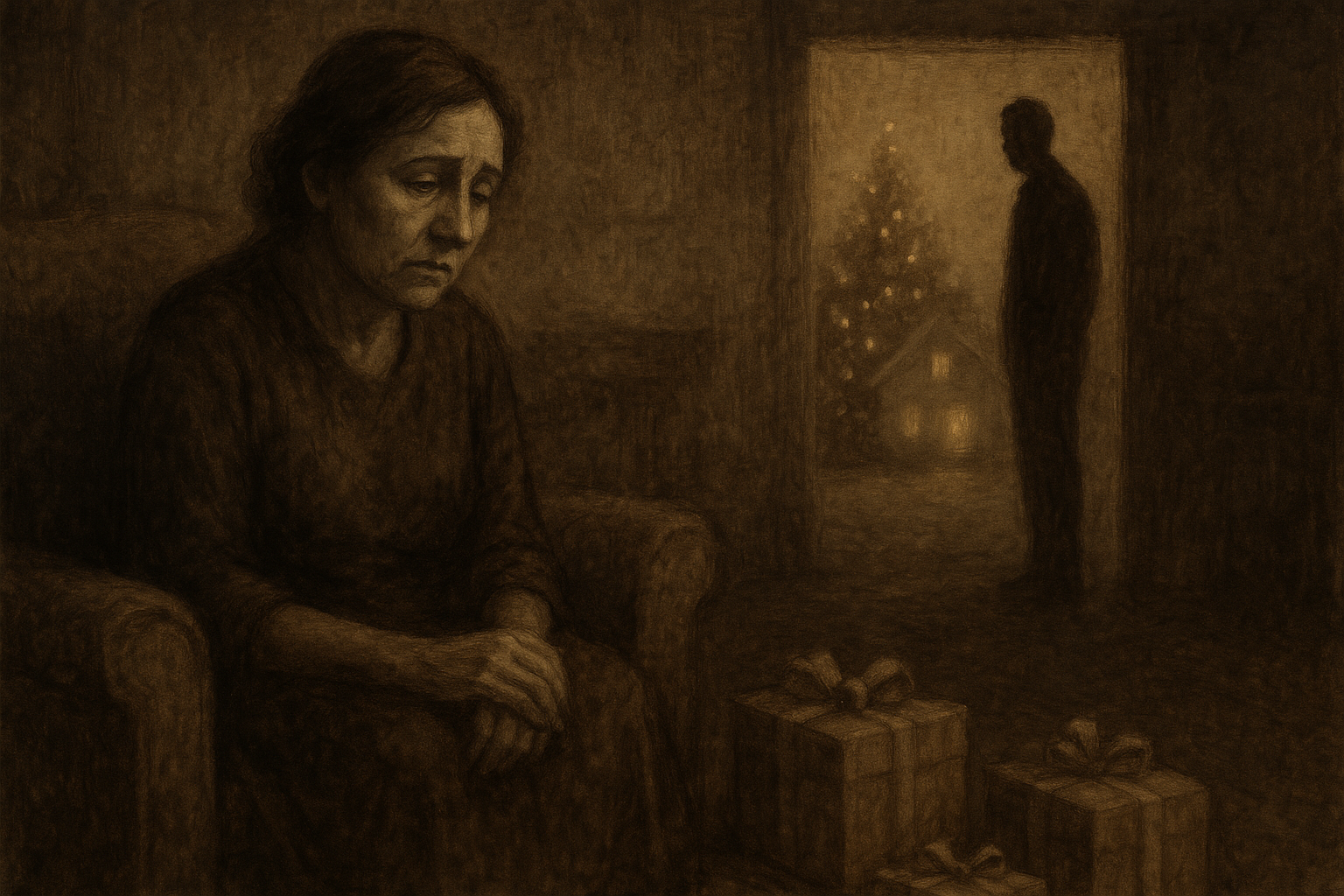Part 2 – Unveiling Family Dynamics Through Richard Rodriguez’s Narrative
Depicting the Mother’s Emotional State Through Narrative Clues
Richard Rodriguez skillfully conveys his mother’s emotional state through subtle narrative clues rather than direct statements. In his description of a Christmas scene, she sits quietly in her chair, feet surrounded by gifts. The presents, normally symbols of love and joy, become heavy reminders of what cannot be fulfilled—suggesting an emotional void that material abundance cannot cover.
Christmas, typically marked by warmth and togetherness, becomes a poignant backdrop for sadness. Her distant gaze, faint smile, and contemplative silence contrast sharply with the surrounding celebration, highlighting the quiet weight she carries. Rodriguez’s restraint in describing her—never naming the sadness outright—invites readers to look closer, to sense what lingers unspoken between the lines.
Through this technique, Rodriguez mirrors the emotional realities of many families, where joy and sorrow intertwine, and where love often carries shadows of disappointment.
Unveiling the Underlying Sadness Overshadowed by Positive Aspects
Rodriguez begins by drawing readers into a seemingly heartwarming picture of a holiday gathering—twinkling lights, laughter, and carefully wrapped presents. Yet beneath this cheerful exterior, subtle cracks emerge. His mother’s fleeting expressions, quiet detachment, and understated questions slowly reveal her true state of mind.
This shift from surface joy to underlying melancholy is deliberate. By first establishing a scene of comfort and happiness, Rodriguez makes the later revelations more striking. The contrast reminds readers that family celebrations, while outwardly joyful, often contain hidden burdens. His mother’s sadness is not a contradiction of love but a quiet truth coexisting with it.
Analyzing the Implications of Maternal Disappointment on Family Dynamics
The mother’s disappointment extends beyond herself, shaping the emotional landscape of the entire family. For Richard, it manifests as subtle pressure and lingering self-doubt. For his siblings, it creates both relief at having met expectations and anxiety about sustaining their “success.” Together, these reactions weave an undercurrent of unspoken comparison and quiet tension.
Rodriguez suggests that this disappointment stems not from a lack of devotion but from his mother’s deep sense of identity as a guide and nurturer. Her children’s struggles and achievements are inseparable from her own sense of worth. When Richard falters in her eyes, she feels it as both his shortcoming and her own.
This intertwining of parental aspiration and self-identity intensifies family dynamics. Conversations may drift toward accomplishments and plans for the future, often at the expense of deeper emotional connection. Yet, Rodriguez makes clear that disappointment itself is not the absence of love—it is, paradoxically, born of love, care, and hope.
Poetic Bipolar Mind: A Space for Reflection on Family and Self
The themes Rodriguez illuminates resonate deeply with the purpose of Poetic Bipolar Mind. Just as his mother’s disappointment reflects the complexity of love, sacrifice, and unmet hope, this platform seeks to uncover the unspoken truths that shape family life and individual identity.
Through poetry, essays, and reflections, Poetic Bipolar Mind reveals the dualities of human experience—the joy that warms and the silence that burdens, the hope that uplifts and the disappointment that lingers. These works become a space for readers to recognize their own experiences, to find language for emotions often left unsaid.
By linking Rodriguez’s portrayal to the mission of Poetic Bipolar Mind, the narrative expands beyond one family. It becomes a mirror for many, a reminder that disappointment and love are often inseparable, and that storytelling itself can transform private struggle into shared understanding.





Leave a Reply